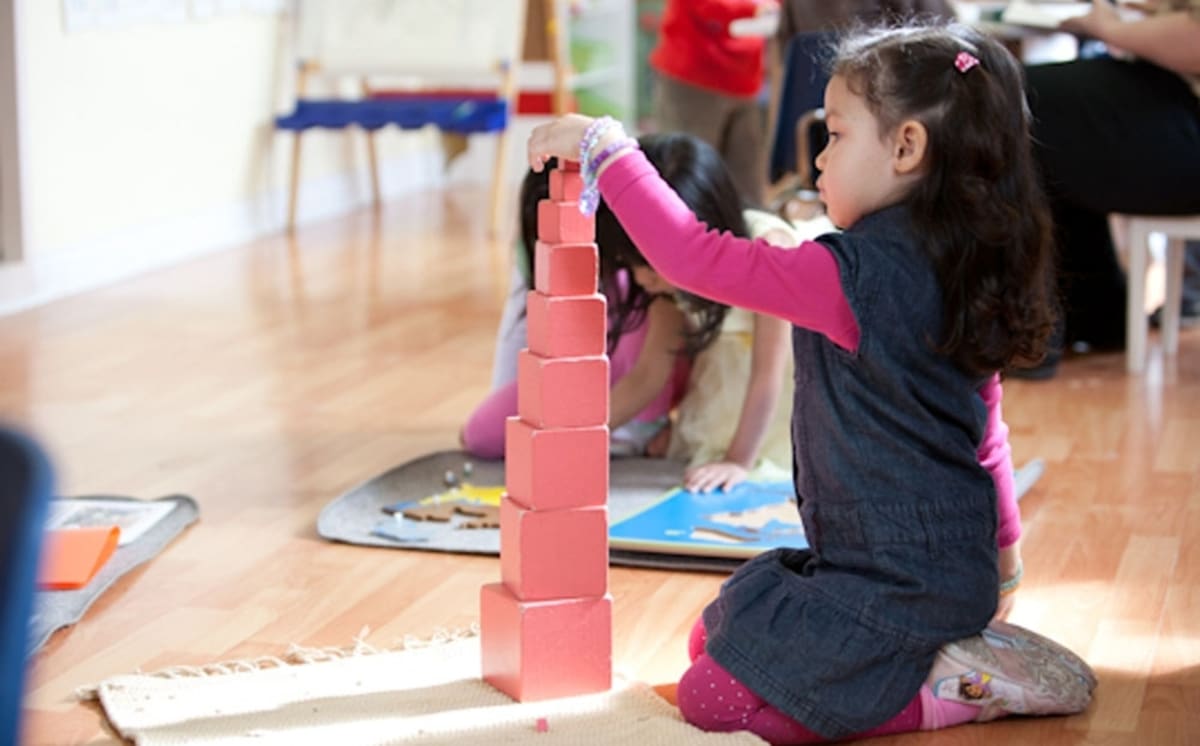How we see Curlew Montessori School
With an accredited Montessori program, adapted to the developmental needs of each child, Curlew Montessori School fosters curiosity, autonomy, and intrinsic motivation in learning. Parents often describe the school as a second home, emphasizing its nurturing environment and strong community bonds. The low student-to-teacher ratios, and qualified teachers, are combined with the school’s commitment to providing a bright, spacious, and well-equipped learning environment. Key offerings include French as a second language, nutritious lunch and snack programs, and a large outdoor play space. Despite its small size, the school maintains a vibrant educational culture. Parents choose Curlew Montessori for its quality education, individualized and child-paced learning, and its supportive, beautiful facilities. The school aims to develop complete individuals, adapted to their time, place, and culture, in line with Maria Montessori's educational philosophy.
Compare with:
How Curlew Montessori School sees itself
"At Curlew Montessori School, we provide an enhanced Montessori program, tailored to each child's developmental requirements. Our approach fosters inner drive and autonomous learning, enabling children to progress individually. We instill a deep sense of personal and societal responsibility, along with the joy of achieving excellence. Many parents liken our school to a second home. Reach out via phone or email to arrange your tour. We look forward to meeting you!"
"Regarded by families as a second home, our school plays a pivotal role as a child's initial step into the academic world. This transition from home to school life establishes strong bonds within classrooms and the school community. With its intimate size, Curlew Montessori School excels in providing personalized care and attention to every child and family, setting us apart."
"Quality Education
Individualized learning
Child paced learning
Learning as an aid to life
Accredited and licensed
Beautiful, bright and spacious facilities"
"Creating opportunities for parents to fully engage and understand the Montessori philosophy and opportunities to strengthen their parenting knowledge and skills. This is facilitated by organizing and implementing the events such as parent education nights, ongoing discussions about the progress of their child through p/t conferences, classroom observations."
"We may be small, but we are mighty! Though our school may be compact, we uphold an unwavering commitment to top-tier programming, ensuring a vibrant educational culture for both children and their families within this age group."




How people from the school’s community see Curlew Montessori School
Top-down influence on the school’s direction and tone

Raihana Mohideen , Director
Dr. Maria Montessori observed that children below the age of six possess a remarkable capacity to soak up knowledge from their environment, driven by an intrinsic motivation to do so. She termed this phenomenon the "absorbent mind" and acknowledged that these formative years offer a unique window of opportunity for learning certain skills that may not be as readily attainable later in life. At Curlew Montessori, we foster the inherent love for learning and exploration that children possess by providing them with chances to independently select and engage in meaningful activities.
In our educational setting, we employ Montessori learning materials to offer children tangible reasons to touch, manipulate, and learn, guided by their individual interests and natural curiosity. Our accredited Montessori program places emphasis on acquiring practical self-help abilities, developing the ability to differentiate between sizes, shapes, and colors, familiarizing with phonetic sounds of the alphabet, progressing towards writing and reading, numerical counting, comprehending number symbols, delving into arithmetic, and exploring subjects like botany, zoology, and geography through hands-on experiences.
All these learning experiences are facilitated by trained Montessori educators, who instill a sense of joy in the process of discovery. Through their own initiatives, children cultivate self-discipline and the capacity to concentrate.
We warmly invite you and your child to join us. Feel free to contact us to schedule a visit and tour our facilities.
THE OUR KIDS REPORT: Curlew Montessori School
Next steps to continue your research:
Continue researching Curlew Montessori School with OurKids.net, or visit school website.